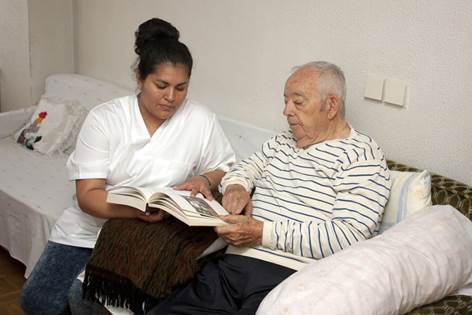A Talk with a Nurse Can Persuade Hospital Patients to Quit Smoking
A new study, published in the American Journal of Preventative Medicine, shows that smoking cessation outcomes are doubled if hospital patients speak with a nurse or staff member trained in the most effective ways to coach patients on how to stop smoking and where to find additional resources and treatment options.
"They were armed with everything they needed when they left - medication, behavioral tactics, a manual to help them stay on track," said Sonia Duffy, a professor of nursing at The Ohio State University and lead author of the study. "Hospitalization is the perfect time to help people quit. They're more motivated and nurses can explain how smoking harms their health, including slowing healing."
The study focused on the self-reported and lab-confirmed quit rates of 1,528 patients in five Michigan community hospitals after six months of discharge. Three of the hospitals’ nurses had undergone a one-hour training for smoking cessation, met with patients at least once.
After the sixth month of being released, the study found that, “16.5 percent of the smokers from the intervention hospitals said they'd quit, compared to 5.7 percent from the other hospitals.”
 Duffy claims that smoking cessation techniques are not commonly taught in nursing schools and counseling for smoking cessation is “spotty” throughout U.S. hospitals. She also believes that nurses don’t always inform patients about counseling, but instead refer them to the Tobacco Quit Line. Instead, she says that smokers should be provided with a plan and tools while they are in the hospital to effectively enhance the chances of their success.
Duffy claims that smoking cessation techniques are not commonly taught in nursing schools and counseling for smoking cessation is “spotty” throughout U.S. hospitals. She also believes that nurses don’t always inform patients about counseling, but instead refer them to the Tobacco Quit Line. Instead, she says that smokers should be provided with a plan and tools while they are in the hospital to effectively enhance the chances of their success.
These “Tobacco Tactics” were developed to adhere to the Joint Commission standards, “which are currently voluntary, but are expected to become mandatory.”
At Tobacco Tactics hospitals, nurses spent an average of nine minutes with patients, while staff at the other two hospitals did not alter their approach to patient care. Nurses provided the most effective tools and quit-smoking aids for to smokers in the Tobacco Tactics hospitals based on their individual addiction and past attempts at quitting. Smoking cessation strategies were also taught to smokers, “including identifying triggers and planning strategies to manage cravings.”
Patients received a brochure and advice from a physician on quitting, as well as a card with the 1-800-QUIT-NOW Tobacco Quit Line number. Patients also had the option to view an informative video on quitting and read the Tobacco Tactics manual and a smoking cessation oriented magazine.

